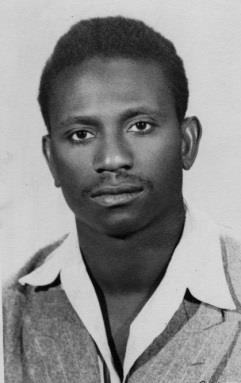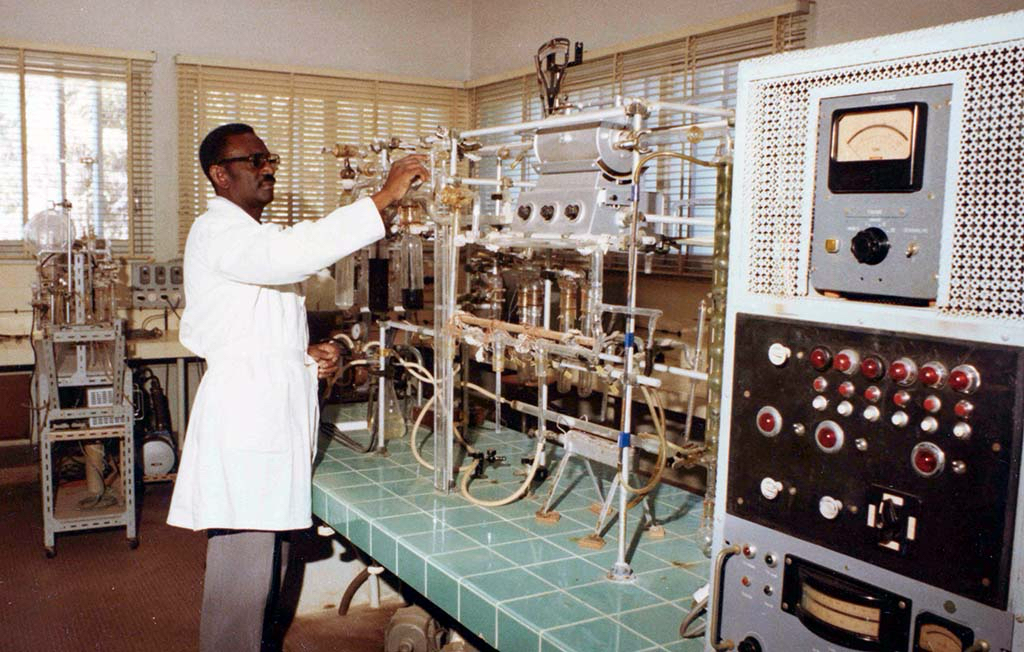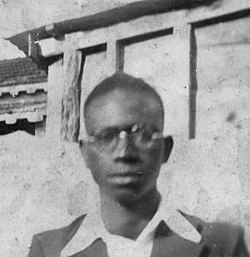

Title: Cheikh Anta Diop: The Mind That Reclaimed Africa’s Greatness
By Devon T. White | ThaWilsonBlock Magazine | Dropping Jewels That You Can Use
The Birth of a Revolutionary Mind
Cheikh Anta Diop was born on December 29, 1923, in Thieytou, Senegal — a small village that would unknowingly give rise to one of the most powerful intellectual voices in African history. From his earliest years, Diop stood out not just as a student, but as a visionary. His early education combined traditional Islamic learning with the Western-style colonial schooling system, allowing him to bridge two worlds that had long been separated by misunderstanding and prejudice.
At 23, he left Senegal for Paris, stepping into an academic world dominated by European historians who dismissed Africa’s role in civilization. But Diop was not there to conform — he was there to challenge, to redefine, and to restore the truth about Africa’s place in human history.
The Scholar Who Fought for Truth
In Paris, Diop studied physics and chemistry under some of the world’s best minds, including Nobel laureate Frédéric Joliot-Curie, but his passion extended far beyond the lab. He immersed himself in history, linguistics, anthropology, and philosophy, determined to use science as a tool to uncover Africa’s stolen legacy.
In 1955, he published Nations Nègres et Culture (The Negro Nations and Culture), a groundbreaking work that argued — with scientific and historical evidence — that ancient Egypt was a Black African civilization, and that Africa was not the “Dark Continent” Europe portrayed it to be, but the cradle of world civilization.
His thesis shook the intellectual world to its core. European academics called it radical. African thinkers called it liberation. Diop’s courage to confront centuries of distortion made him a symbol of mental emancipation — a voice that declared, “History belongs to those who write it.”
The Return Home and the Rebuilding of Knowledge
After Senegal gained independence in 1960, Diop returned home. He didn’t come back as a celebrity; he came back as a builder. At the Institut Fondamental d’Afrique Noire (IFAN) in Dakar, he established a radiocarbon dating laboratory — the first of its kind in Africa. His goal was revolutionary: to provide Africans the scientific tools to study their own history, on their own soil, with their own evidence.
Diop wasn’t just rewriting the past; he was reclaiming the right to define it. His research proved that Africa’s decline was not born of inferiority, but of colonization, distortion, and erasure. His message was that Africa’s liberation begins in the mind — that the first revolution is always intellectual.
The Pan-African Visionary
Diop believed that Africa’s greatest strength lay in its unity. He envisioned a United States of Africa, bound not by colonial borders, but by shared language, shared purpose, and shared destiny. He wrote about the need for Africa to develop its own technology, its own education system, and its own economic power — independent of Western control.
He once said, “The African who tries to live by borrowing foreign ideas will die of indigestion.”
This statement wasn’t just cultural pride — it was a blueprint for self-determination.
To Diop, reclaiming Egypt’s Black identity wasn’t about pride alone; it was about power. It was about showing African youth that the pyramids, mathematics, writing, architecture, and philosophy were all the birthright of their ancestors.
The Final Chapter
Cheikh Anta Diop passed away on February 7, 1986, in Dakar, Senegal. The official cause of death was a heart attack, but in truth, the man’s heart had long been devoted to one cause — the awakening of Africa. He was laid to rest in his birthplace, Thieytou, near his ancestors.
In his honor, the University of Dakar was renamed Université Cheikh Anta Diop, ensuring that his name would live on in the halls of African learning and consciousness.
The Legacy Lives On
Cheikh Anta Diop’s work lives far beyond his time. His research laid the intellectual foundation for Afrocentric scholarship and inspired generations of thinkers to continue challenging colonial narratives. He taught that the restoration of dignity begins with the restoration of truth.
Today, as young Africans, scholars, and artists reclaim their narratives, Diop’s words echo louder than ever:
“To reconstruct the past of Africa, one must begin by studying Egypt.”
But his true message was even deeper — that every African soul carries the blueprint of greatness. That liberation is not only political but intellectual and spiritual.
Diop showed us that the past is not dead; it’s alive, pulsing through our blood, waiting for us to remember who we are.
Closing Reflection
Cheikh Anta Diop was not just a historian — he was a rebel of the mind, a scientist of the soul, and a builder of nations yet unborn. His life stands as proof that one mind, grounded in truth and guided by purpose, can rewrite history and reshape the destiny of a people.





Comments
Post a Comment